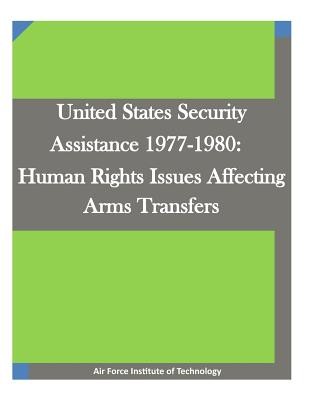| United States Security Assistance 1977-1980: Human Rights Issues Affecting Arms Transfers Contributor(s): Penny Hill Press Inc (Editor), Air Force Institute of Technology (Author) |
|
 |
ISBN: 1522911510 ISBN-13: 9781522911517 Publisher: Createspace Independent Publishing Platform OUR PRICE: $12.30 Product Type: Paperback - Other Formats Published: December 2015 |
| Additional Information |
| BISAC Categories: - Political Science | Security (national & International) - Political Science | International Relations - Arms Control - Political Science | Human Rights |
| Physical Information: 0.19" H x 8.5" W x 11.02" (0.51 lbs) 90 pages |
| Descriptions, Reviews, Etc. |
| Publisher Description: The 1970s were a period of great transition for the United States. Plagued by the Vietnam conflict, a conflict; which we could never win because of poor planning and lack of resolve by government officials in the highest office, and: the Watergate debacle, where our government veered out of control, the time was ripe for change. Which is precisely why the ideals and philosophies of one James Earl Carter enabled him to ascend to become the 39th President of the United States. President Carter entered office pledging the United States would lead the way in the restriction of weapons exports and increase world awareness on the issue of human rights. He kept his word by passing a six-point plan, known as Presidential Directive 13, which imposed a variety of restrictions on the transfer of arms from the United States to other countries. He also attempted to accomplish his human rights objective by making the transfer of arms with the recipient country's acceptable treatment of its populace. By protesting human rights violations he hoped to secure increased rights for the politically oppressed around the world. Though the Carter effort did succeed in raising the level of concern for human rights around the globe, due to its uneven application and inconsistent implementation, it was discarded as a policy in 1979. The six-point plan to reduce the proliferation of arms around the globe was also ineffective, primarily because countries friendly to the United States did not agree with the merits of the plan. |